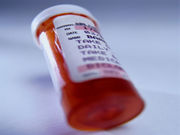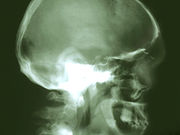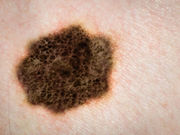Germline Mutations Up in Men With Prostate CA, One Other CA
However, most of these men do not meet current clinical criteria for germline testing
AMA: Doctors Should Make Sure Their Online Info Is Accurate
Speakers in educational session urge caution in online behavior
Market Competition Linked to Change in Generic Drug Prices
Price change of −31.7 percent for quadropoly and 47.4 percent for monopoly
Insurance Status, Income Tied to Outcome in Pharyngeal SCC
Insurance status, median household income remain independent prognostic factors after adjustment
Comparable Metabolic Effects for E-Cigarettes, Smoking
Even without nicotine exposure, similar deleterious effects for e-cigarettes, traditional tobacco cigarettes
FDA Expands Use of Cooling Cap to Cut Chemo-Related Hair Loss
Treatment now approved for patients receiving chemotherapy for solid tumors
June 2017 Briefing – Hematology & Oncology
Here are what the editors at HealthDay consider to be the most important developments in Hematology & Oncology for June 2017. This roundup includes...
Depression Contributes to Health Decline Seen in Cancer Caregivers
Identifying signs early on might help protect these individuals, researchers say
Many Women Have Questions, Concerns About Tamoxifen
Study shows that normal symptoms of menopause are often attributed to tamoxifen
Nivolumab Rx Beyond Progression Beneficial in Melanoma
28 percent of patients treated beyond progression had lesion reduction >30 percent



















